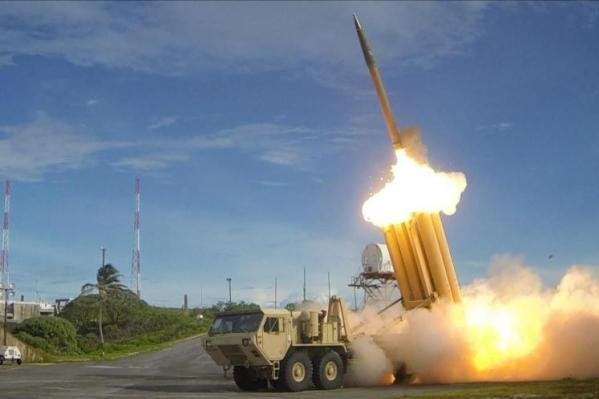China has opposed the deployment of THAAD in South Korea and has implemented stricter measures against businesses and even pop performers. File Photo courtesy of the U.S. Missile Defense Agency
SEOUL, Dec. 1 (UPI) -- Concern over Chinese retaliation in response to a decision to deploy a U.S. missile defense system continues to grow among South Korean businesses in China.
Companies, including Samsung and LG, are experiencing delays in standard procedures, including receiving certification for components like batteries, Yonhap reported Thursday.
Challenges are being posed to South Korean businesses at a time when Beijing appears to have tightened restrictions against Korean pop artists.
Since October, no K-Pop artist has been permitted to hold shows in China, where Korean celebrities enjoy high levels of popularity, CNBC reported last week.
On Thursday China-based sources told Yonhap local authorities have begun to take more serious measures, targeting the South Korean conglomerate Lotte Group with an investigation.
Lotte is the company that reached a deal with Seoul on a site for THAAD at its golf course in Seongju.
Chinese authorities have conducted what the press report describes as an "unusually intensive investigation" into Lotte subsidiaries ranging from tax audits to safety inspections at plants.
A second source in Beijing told Yonhap "sanctions" against South Korean companies have been implemented since Seoul announced its decision to deploy THAAD in July.
China has been vocal about its opposition to THAAD and has claimed the system's powerful radar could be used for surveillance.
The United States and South Korea maintain THAAD is for defense purposes against North Korea missile provocations.
On Thursday Chinese foreign ministry spokesman Geng Shuang denied state investigations into the Lotte Group have any connections to the government's opposition to the U.S. missile defense system.















